Pakistan/November 14, 2017/Source: https://www.pakistantoday.com.pk
- Failure of public education system
How much development and progress has been made can be seen from recent statistics about Literacy Rate in Pakistan. As it dropped by 2pc in the year 2015-16 to 58pc and that under the criteria, “a person is literate who can read and write a paragraph (3 lines) in a national/regional language with comprehension”
On the one hand our government is hiring hundreds and thousands of new teachers while on the other it is privatising thousands of public schools through PEF
“Education is a matter of life and death for Pakistan. The world is progressing so rapidly that without requisite advances in education, not only shall we be left behind others but may be wiped out altogether.” Quaid-e-Azam Muhammad Ali Jinnah.
Recently, Pakistan celebrated its 70th Independence Day. How much development and progress has been made can be seen from recent statistics about Literacy Rate in Pakistan. As it dropped by 2pc in the year 2015-16 to 58pc and that under the criteria, “a person is literate who can read and write a paragraph (3 lines) in a national/regional language with comprehension”.
Reasons behind the downfall of education system?
Let’s talk about the reasons of downfall of education in Pakistan, especially Punjab, which was once considered the hub of educational institutes and province with highest literacy rate. There is no special reason but an amalgam of corruption, overspending education budgets in salaries given to teachers, lack of motivation towards education among students and parents alike, lack of schools in rural areas, lack of counselling, and missing infrastructure in schools.
Punjab Education Foundation (PEF)
Punjab Education Foundation (PEF) was established by the Punjab Assembly’s PEF Act of 1991. At that time its purpose was to help private investors (by funding or granting loans to) build new schools so there may be more schools accessible to the public. The ultimate authority of PEF was under the government from 1991 until Act of 2004 as between this period the chief minister of Punjab was its chair, but after 2004 it started working as an autonomous body under a board of directors. Initially, its basic aim was to provide better education to the nation with the help of private schools by providing teacher training, professional development for private schools, interest-free loans for building construction and by providing special vouchers to households of the students to incentivise them for taking education seriously. But today, a significant chunk of PEF’s budget goes to it Foundation Assisted Schools (FAS) programmes through which, Punjab Education Foundation (PEF) pays for every child’s fee enrolled in a Foundation Assisted Private School.
Punjab Education Foundation (PEF) claims that its programmes are cost effective that is why these programmes are the best solution for equity and quality of education. In a wave of privatisation of already existing public schools, Punjab Education Foundation (PEF) has privatised thousands of public schools. PEF gave management of these thousands of public schools to private investors. Now, I would concede to the fact that, yes, PEF is efficient in what it is doing so far, but the real question is whether the approach being followed by PEF is the right approach for long-term greater good?
Punjab needs to spend more on education?
In the fiscal year 2016 Punjab’s Education budget was $2.99b out of which only $0.602b was allocated for development projects and the rest was to cater the current needs of the education department. During the fiscal year 2014, 87pc of the education budget was spent on salaries given to teachers. The major problem lies in the overspending of the education budget on salaries to 343,458 teachers and when after evaluations a schools’ progress is represented by numbers they just decide to outsource these schools or encourage students of these schools to go to private schools which are already compensated by Punjab Education Foundation (PEF) other programmes; eventually wasting tax payer’s money in the process. It may serve its purpose in the short term but then what is the purpose of having a public school system if eventually all that government is going to do is to outsource these public schools.
Punjab Education Foundation (PEF) started paying fees of the students to the private management of the schools. Fee varies according to the grade level of a student;
Rs550 per student up till primary classes
Rs600 per student for elementary classes
Rs900 per student for secondary arts classes
Rs1100 per student for secondary science students
Punjab Education Foundation is aiming to privatise the management of all schools up till grade five across Punjab and also plans to keep management of some of the school from grade six onwards.
It is worth noting how this system can collapse in seconds as it did with the change of government after 2008 national elections when PEF’s progress stalled for nearly a year. This concludes that the progress will show its numbers as long as you keep paying these private investors and this is not going to help raise the quality of education in public schools at all. On the other hand, if public schools get operated appropriately by introducing a better attendance system for teachers and students, they may even need lesser funds than what they are already spending paying these investors and overpaying their own teachers.
What needs to be done?
Pakistan as a whole has more than 600,000 teachers appointed as government employees, these teachers may have degrees, but most of them lack motivation and discipline for doing their job with honesty as most of them do not even bother showing up in schools and gather huge sums of money in salaries. This problem needs to be addressed on an emergency basis by introducing appropriate measures.
The government needs to stop paying private investors fees for students and needs to raise the standard of the public education system which is more useful in the longer run. This policy is going to help the government build a precedence of good management within its public schools otherwise its already failing public schools because of lack of good management are going to lose their remaining symbolic as well as figurative value.
Failure of charter schools in America
Pakistan is not the first country whose government has taken this step as in America this policy was implemented in the form Charter Schools. There are two types of Charter Schools in America; for-profit and non-profit. Our policy is almost similar to the US in its structure. According to National Charter School Study (NCSS), done by the Centre for Research on Education Outcomes (CREDO), 75pc of the charter schools in America were either worse or not better performing than public schools. That is because with the Charter Schools Programme, the US government focused more on their public education system to ensure that faults remain no more.
Importance of public schools
Finland has a literacy rate of 100pc. There are no private schools in Finland. The reason for that is if there are no private schools then rich people are going to care about public schools as much as they care about private schools because now they do not have any choice but to help make those public schools better. It is not easy to comprehend that a country where private schools are non-existent can have a literacy rate of 100pc. Finland had the same old rusty education system similar to the entire world till 1970, and then they changed everything once and for all for the sake of the greater good.
Only those people are hired as teachers who fall among the top 10pc of the graduating students. Teaching profession is considered as good as doctors and engineers. Teachers in Finland get paid more than teachers in the United States of America (USA). There is no standardised testing system for students and Finish students do not take any test until they are 16 years of age. There is no ranking among schools because they work under the policy “whatever it takes” and try to keep everyone at the same level. According to Programme for International Student Assessment (PISA) scores released in 2009 Finish Students came 2nd in science, 3rd in reading, and 6th in math among nearly half a million students worldwide. These plans may seem very hard at the first look but once implemented they are way easier. All the schools are publicly funded, and if it seems so hard then why not shut down, all these high-end schools and ask the wealthy to fund public schools. There is no corporal punishment as widely practiced in Pakistan and no competition among students or schools which leads to hundreds of students falling in the pit of anxiety, depression, and eventually committing suicide. There is a rigorous check, and balance for teachers and that is the key to quality education which needs to be implemented in public schools in Punjab and Pakistan as a whole.
Conclusion
From the above discussion it is obvious that privatisation of education never helps. It is necessary to support and raise the public education system on the top. On the one hand our government is hiring hundreds and thousands of new teachers while on the other it is privatising thousands of public schools through PEF. If the government has accepted its failure and is not ready to run the public education system at all, why hiring new people for an already failed system? And if the mission is to make the government schools stronger, why are we wasting funds on paying to the private schools for free education. These two contradictions cannot run side by side for long.
Can we stop experimentation on education and follow the common successful practices only and seriously?
The question remains.
Source:
Is Punjab Education Foundation a better solution?

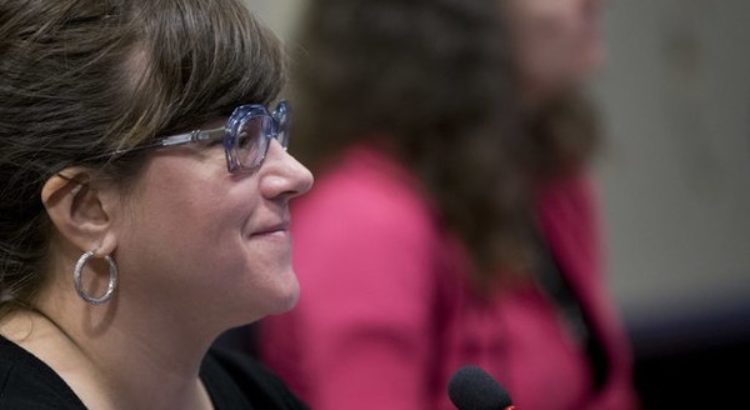
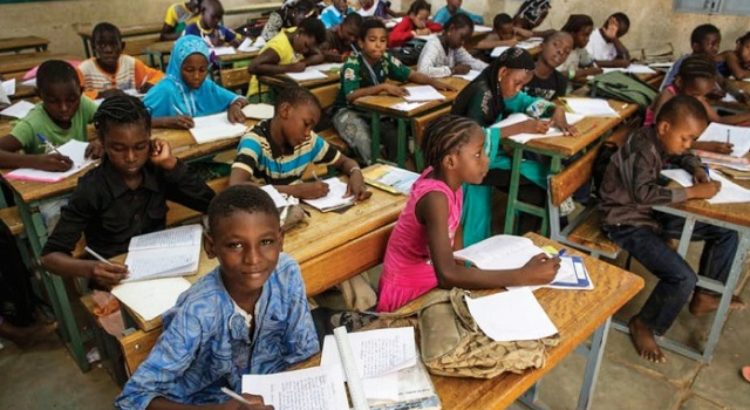

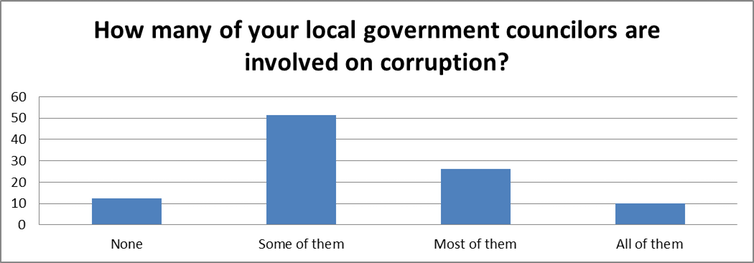
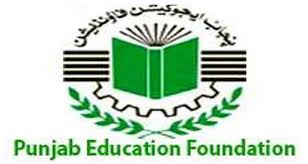

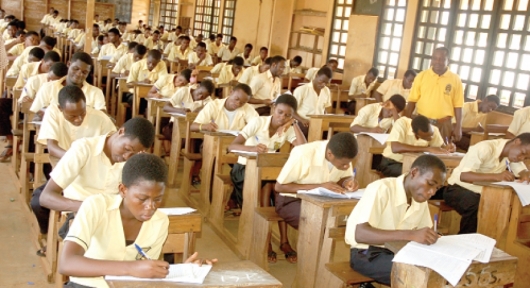








 Users Today : 75
Users Today : 75 Total Users : 35403912
Total Users : 35403912 Views Today : 88
Views Today : 88 Total views : 3333334
Total views : 3333334